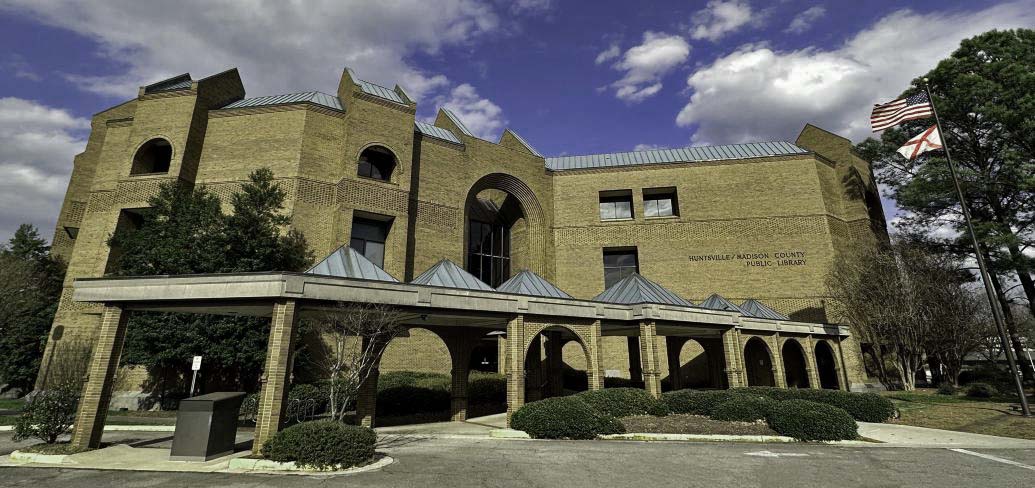The Huntsville-Madison County Public Library system moved forward with a set of new policies on Tuesday despite potential changes last week to the Alabama Public Library Service administrative code.
Some residents praised the changes for strengthening the library’s policy toward intellectual freedom while others criticized the move and predicted the system will lose $500,000 in state funding when the policies are found to be insufficient of what APLS requires.
Board president Kevin Gray said before the public comment session that these changes have been in the works for months and that the policy could be further changed.
“Governance is going to continue to work with library staff to evaluate library policies based on changes to the administrative code,” Gray said. “So it’s an ongoing process and policies are not set in stone.”
A recording of the full meeting is available courtesy of I Vote Madison.
The changes include updates to the display and exhibit policy, the collection development policy and the statement of concern policy.
The changes include stripping all mentions of the American Library Association, including removing the Library Bill of Rights, in an apparent response to the controversies surrounding the association in recent months.
The policy adds language that “the library shall not exclude materials solely due to the subject matter dealing with topics deemed controversial at any given time. The library shall not purchase or receive as a donation any book or material that violates applicable laws or regulations.”
It also clarifies that library staff share the responsibility of curating the collection along with the executive director and puts the onus for material availability to minors on parents.
“HMCPL supports each person’s right to receive information and to decide which items are appropriate for them and their families. Ultimate responsibility for a minor’s use of library materials lies with the minor’s parent or guardian.”
That language is also reflected in changes to the Statement of Concern policy.
“The library supports each person’s right to receive information and to determine what is appropriate for them and their families. As a result, the library will not remove specific materials solely because they may be controversial at the time or objectionable to some.”
The display policy now expressly prohibits “exhibits that are commercial in nature, promote a specific religious concept, encourage partisan politics, or demean groups or individuals.”
Resident Scott Jones said the policies do not meet the APLS code changes requiring policies safeguard children from obscene and sexually explicit materials.
“You know, right now, your policy stands in the face of this policy,” Jones said. “It’s wrong; and not only that, you’re going to cost this library $500,000. Because that’s how much the state gives you every year.”
The code changes made by APLS remain vague, with no definition of “Sexually explicit” content. Not only do the APLS code changes not define what “materials are deemed inappropriate for minors,” they fail even to define who is responsible for deeming those materials inappropriate. APLS board member and ALGOP Chair John Wahl told APR that he assumes either local library boards or APLS may be the one responsible, an important distinction with state funding on the line.
Marisa Alison, a Read Freely Alabama chapter leader speaking on her own behalf Tuesday, thanked the board for the changes and called them be a leader in the midst of the ongoing library challenges.
“I come to you today to talk about how the current moment that we
are in is a moment for our library system to be a leader in the state to push back
against, what we now can safely say is not an just an attempt to censor materials,
but is actually a move toward banning content in our libraries,” Alison said.
Alison also noted that the administrative code changes, although approved by APLS, are not yet active nor set in stone.
“Though this amendment was passed by the APLS it doesn’t become effective until July,” Alison said. “This means the rule will be open for comments that will be shared with the Joint Legislative Committee who have the ability to disapprove it and send it back to the APLS. We encourage the board and library leadership to take all the steps you can to let this Joint Committee know the costs this will have to our library system and to our community.”



















































